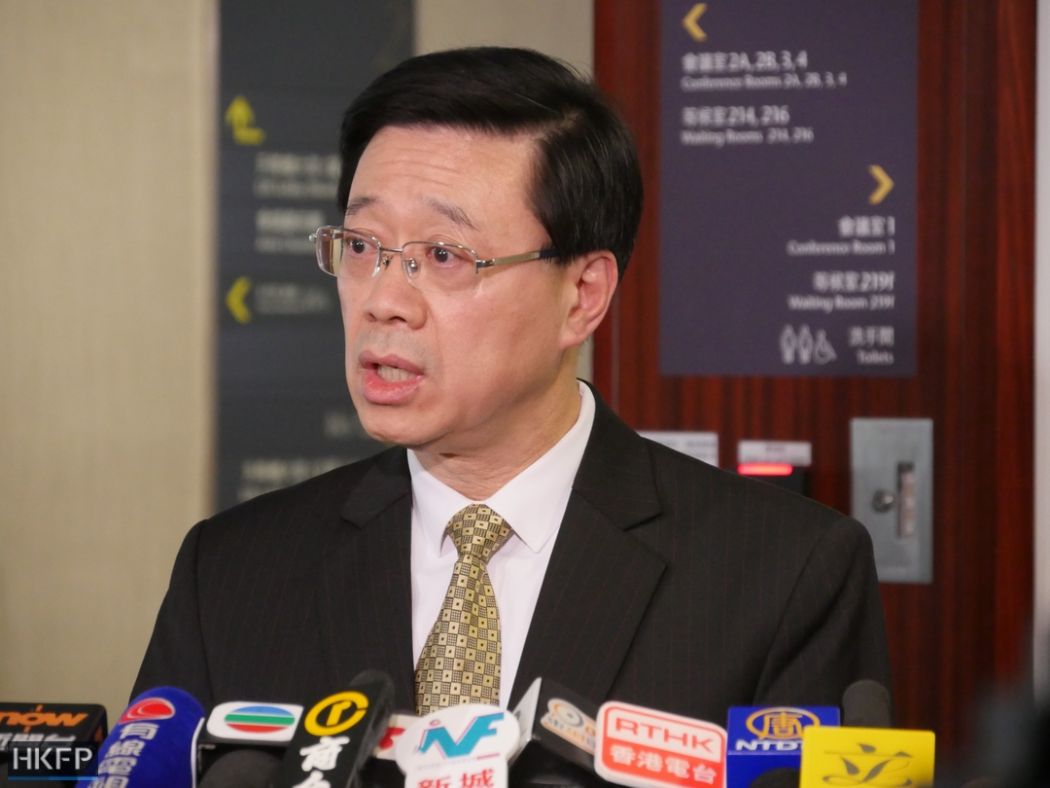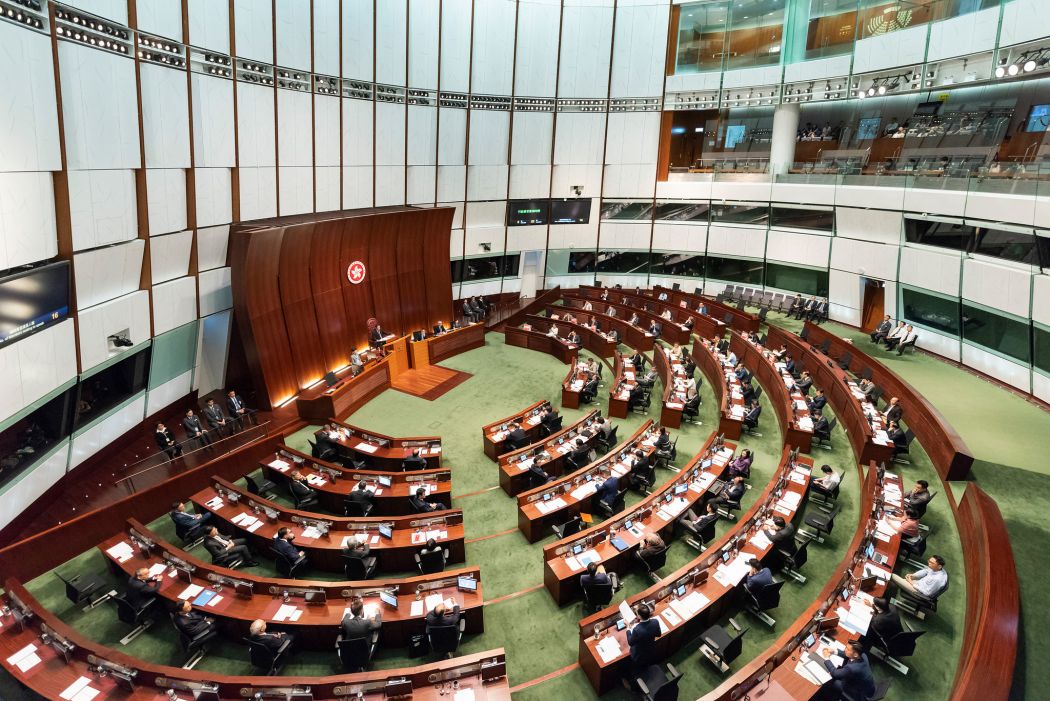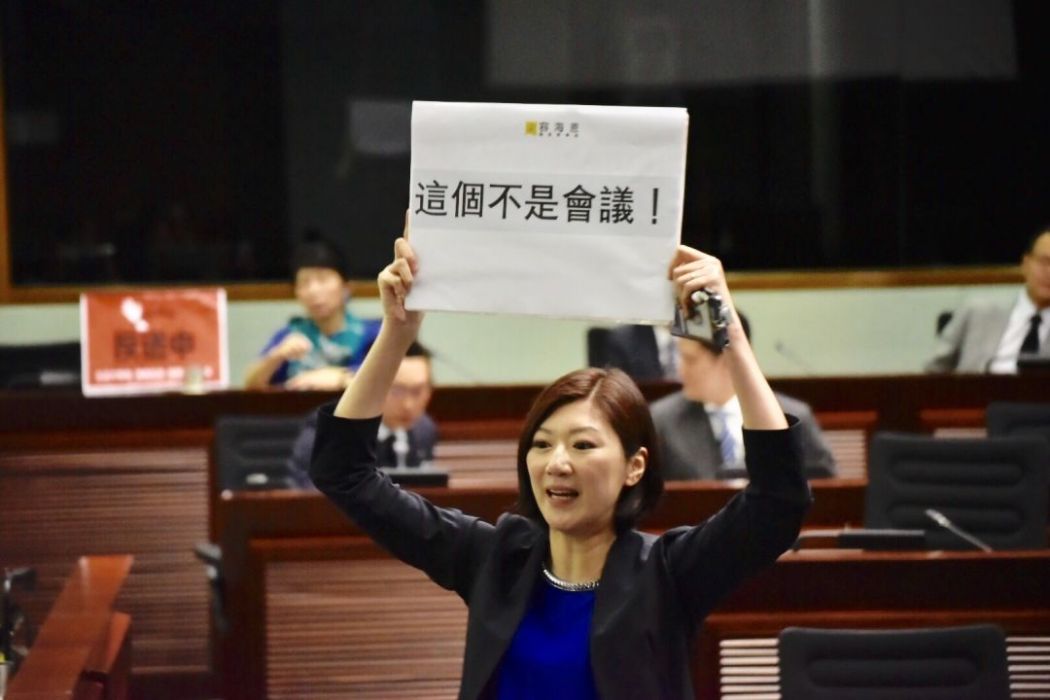Shortly after 4:35pm on Monday, lawmaker James To convened one of the most unusual meetings in the history of Hong Kong’s Legislative Council. He and 22 other colleagues were preparing to discuss a controversial bill that sought to overhaul Hong Kong’s extradition laws – yet the meeting was disavowed by the legislature’s administrators.
Lawmakers constantly jockey for top spots in influential committees, and clashes between the pro-Beijing and pro-democracy camps are nothing new. However, before Monday it was unheard of for two legislators to simultaneously claim to be the lawful head of a committee. At the heart of the dispute was the legislature’s secretariat, which is now under fire for possible illegality.
1: What is the extradition bill proposed by the Hong Kong government?
In February, the Hong Kong government proposed amending laws so that the city can accept extradition requests from countries where there is no prior agreement. The new system would operate on a case-by-case basis, with the chief executive and local courts playing key roles in determining whether a request is approved.

The government said that the amendment would plug a “loophole” in the current system, referring to a case where a Hong Kong man allegedly murdered his girlfriend on a trip to Taiwan. The man fled back to Hong Kong, and the government argued that the new system would allow Taiwan authorities to retrieve the suspect and have him face justice on the island.
However, the proposed law does not just apply to Taiwan, which Beijing does not recognise as an independent state. It will potentially apply to all other nations where Hong Kong lacks an extradition deal. Lawyers, journalists, overseas politicians and businesses have asked if China would take advantage of the system to extradite people to the mainland, where human rights safeguards and the rule of law are questionable at best.
2: How does a bills committee work?
After the government presents a bill at the legislature, the bill must be vetted by a dedicated committee before it becomes law. Lawmakers can choose to join such a committee, and they will then consider “the general merits and principles, and the detailed provisions, of the bill allocated to it; and may also consider any amendments relevant to the bill.”

Before a bills committee starts working in earnest, it must first elect a chairperson and, if necessary, a vice-chairperson. Given that the pro-Beijing camp enjoys a majority in LegCo, the chairperson role usually falls to a pro-Beijing lawmaker and the vice-chair will be offered to democrats as a compromise.

But who calls the shots before a formal chairperson is elected? That temporary leadership role is called a “presiding member,” which is reserved for the longest-serving lawmaker present. Once the election is complete, the presiding member will give way to the new chairperson. This process typically takes half an hour, which means it will usually be resolved in the committee’s initial meeting.
3: What were the events leading up to Monday’s controversial meeting?
When the bills committee for the government’s extradition proposal first met on April 17, the presiding member was James To from the Democratic Party. To was first elected to LegCo in 1991 and has held onto his seat ever since.
With To at its head, the committee spent two hours discussing procedural issues raised by the pro-democracy camp and, in the end, no chairperson was elected. To argued that the procedural issues must be tackled first, while the pro-Beijing camp condemned the move as filibustering – a delay tactic.

At the committee’s next meeting on April 30, democrats repeated their stalling strategy and the chairperson’s seat remained unfilled. The pro-Beijing camp decided not to counter the filibuster head-on, instead opting to abstain from the meeting in a gesture of protest.
Hours after the second abortive meeting, pro-Beijing lawmakers said they would use the House Committee as the site for their counter-offensive, circumventing the bills committee altogether.
4: What is the House Committee and why is it important?
As a body with wide-ranging responsibilities, the House Committee makes preparations for Council meetings and deals with the legislature’s internal matters. Crucially, it is also responsible for setting up bills committees.

Pro-Beijing lawmakers have likened the House Committee to a “mother” and the bills committees to her “sons.” However, democrats have asserted that a bills committee has its own elected leadership and is not bound by what the House Committee decides.
On Saturday, the House Committee called an emergency meeting to deal with the legislative quagmire surrounding the extradition proposal. The meeting was chaired by DAB veteran Starry Lee, who went on to eject four pro-democracy lawmakers over protests during the meeting.
With a secure pro-Beijing majority, the House Committee voted 37-19 to issue a set of guidelines to the bills committee, stating that lawmaker Abraham Shek – not To – will take on the duties of presiding member until a formal chairperson is elected.

Hailing from the Business and Professionals Alliance, Shek represents the real estate and construction functional constituency. He is the most senior pro-Beijing lawmaker though, ultimately, he ranks behind To and another democrat Leung Yiu-chung.
5: How do the House Committee’s “guidelines” work?
According to the legislature’s Rules of Procedure, a bills committee “shall take into account” guidelines issued by the House Committee. At the Saturday meeting, one of the legal advisors for the Legislative Council said that it was up to the bills committee to decide how to interpret the guidelines.
Democrats could not block the guidelines from being issued, but since the guidelines would need to be discussed at the bills committee itself, it offered another hypothetical opportunity for stalling. Pro-democracy camp convenor Claudia Mo went so far as to “thank” her political opponents for providing ammunition.

However, the democrats’ plan was swiftly undercut by the Legislative Council Secretariat, which issued a circular on Saturday evening asking the 62 members of the bills committee whether they supported the guidelines. The guidelines would be adopted if over half of the committee supports it, the secretariat said.
6: What is the role of the LegCo Secretariat and its head, Kenneth Chen?
Democrats were infuriated by what they saw as a biased intervention on the part of a supposedly neutral body. According to the Handbook for Chairmen of Bills Committees, only the chairperson can issue circulars, and no decision can be made by circular if any member expressed disapproval.
Civic Party leader Alvin Yeung called the secretariat’s move a “coup,” and To denounced the attempt to usurp his role as the presiding member.

The secretariat is led by the legislature’s secretary-general Kenneth Chen, who took up the role in 2012 after serving four years as the Undersecretary for Education.
Tasked with “providing efficient administrative, secretariat and research support for the Council,” the secretariat is comprised of 686 posts – including secretaries, researchers, translators, legal advisors, security officers and public information officers.
On Monday, 23 pro-democracy lawmakers issued a legal letter to Chen accusing him of misconduct in public office. They demanded that Chen retract his decision, otherwise they may launch a legal action or report him to law enforcement agencies.
Democrats also tried unsuccessfully to confront Chen at his office. Civic Party lawmaker Dennis Kwok vowed to move a motion of no confidence against Chen at the next House Committee meeting.

In a statement on Monday evening, Chen said the situation was unprecedented. “The secretariat has always adhered to the principle of being impartial, and will continue to support the legislature in a professional, neutral way,” he wrote. “I deeply regret that some LegCo members have been repeatedly criticising the secretariat.”
Chen said he would not comment on the circular because of the democrats’ threat of legal action.
7: Who is in charge? James To or Abraham Shek?
At around noon on Monday, Shek announced that he had officially replaced To after winning the vote conducted by the secretariat. Since the vote only required a simple majority to win, the numerical advantage of the pro-Beijing camp easily put him over the top.

Shek’s first move as the new presiding member was to reschedule the next meeting of the bills committee to Saturday morning. The committee was originally meant to meet at 4:30pm later that day.
Democrats decided to stick to the original schedule, saying that Shek was not validly elected and had no authority to reschedule meetings. Disavowed by both the secretariat and their pro-Beijing rivals, 23 pro-democracy lawmakers then proceeded to hold their own bills committee meeting.
Pro-Beijing lawmaker Eunice Yung briefly crashed the meeting with a protest sign that read, “This is not a meeting.”
Democrats set up their own Facebook livestreams after the secretariat refused to broadcast the meeting on its online platform. Soon afterwards, one lawmaker’s assistant spotted Kenneth Chen’s Facebook account among those watching the video live – a discovery that quickly became a meme.
This Saturday, Hong Kong may see two parallel meetings of what is supposedly the same bills committee. With democrats alleging illegality on Chen’s part and the pro-Beijing camp refusing to back down, the debate over the committee’s legitimacy is unlikely to be resolved anytime soon.
The Hong Kong Free Press #PressForFreedom 2019 Funding Drive seeks to raise HK$1.2m to support our non-profit newsroom and dedicated team of multi-media, multi-lingual reporters. HKFP is backed by readers, run by journalists and is immune to political and commercial pressure. This year’s critical fundraiser will provide us with the essential funds to continue our work into next year.

